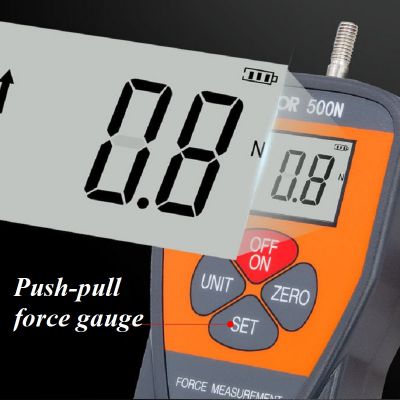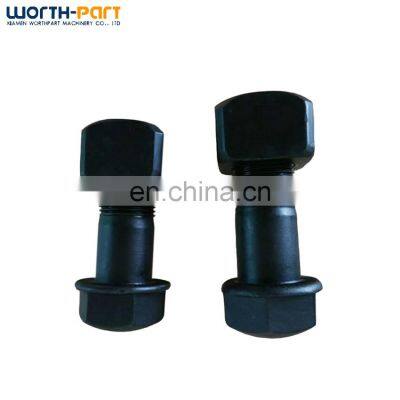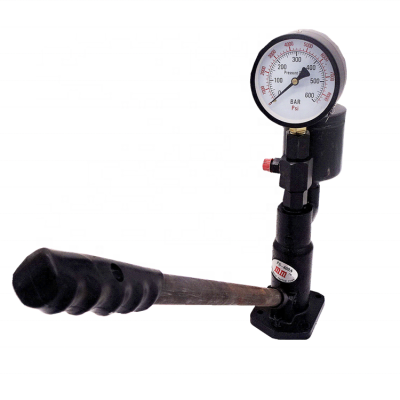Tensile Testing Machine Insights & Buyer's Guide
Tensile testing machines are fundamental in determining the mechanical characteristics of substances employed in diverse applications. These types of machines are also called universal testing machines because they allow for the elongation of the testing machine workpiece to subject it to stress the so-called yield stress, ultimate or maximum tensile force or other limit states. Such information is very important in the technology of different industries, such as construction and aerospace engineering, as these disciplines involve deformation of materials as a part of their application. Using a tensile testing machine, different materials, including metals, plastics, and composites, can be subjected to a tensile test by engineers and scientists in order to ensure that the materials comply to various requirements and standards made by various organizations, for example, ASTM and ISO.
View tensile testing machine Manufacturers in China - Wangtebei details to get into the details
Introduction to Tensile Testing
What is a Tensile Test?
The process of conducting a tensile test is highly effective and allows determination of a number of properties of materials, including tensile strength. To do this, the test sample is subjected to tensile stress along a single axis using special modern equipment: so-called wider tensile testing machine with the essential element in the form of extensometers or specimens which are held by grips inside the machine. The core aim of this is to check the endurance of the material under force which separates its structure. A tensile test also provides very important quantitative information about the workability of the material, as to help understand how to estimate the yield point and the ultimate tensile strength of the specific material. Such detail is very significant for making sure the materials will perform in situ as they are designed to do.
Importance of Tensile Testing in Material Science
When addressing the concern of tensile testing, it is required to focus on the application of a tensile testing machine in order to determine the mechanical properties of any material. This is key in material tests because it enables engineers and scientists to understand the behavior of materials under tensile forces. Such testing can reveal how much strength, how flexible and how durable a material contained. Using tensile testing, it is possible to identify the material’s yield stress and deformation behavior in accordance with safety and performance standards. It becomes more eco friendly in sectors like automotive, aerospace and construction industries where materials are a critical component. The tensile testing enables a systematic and reproducible assessment of the materials when the recommended test practices e.g. those based on ASTM or ISO standards are followed.
Overview of Tensile Test Machines
A tensile testing machine, also known as a universal testing machine, is a complex device that is used to apply tensile stress on a test sample of a material. These machines include electromechanical actuators, hydraulic units, testing software and other advanced devices allowing the application of tensile loads in a very controlled manner along with tensile tests in all defined modes. The extending portion is moved so as to strengthen the material while the extensometers are used in determining the extent of strain and deformation. In testing equipment, this parameter is a merit because it can check materials ranging from metals to even composites, plastics, a very wide range. Calibration of the machine as well as the entity also ensures that the result is accurate and hence acceptable. That is why these testing machines are a standard feature in any materials testing laboratory.
Types of Tensile Test Machines
Universal Testing Machines
One of the most important equipment in material development and testing is the universal testing machinery. It is an all-in-one system that allows a number of experiments such as tensile, compression, and even bending. Different fixtures and grips can be fitted to the universal testing machine which makes it possible to test numerous specimens in terms of shape and different materials from metals to plastics. The system can be constructed with either an electromechanical or hydraulic system for tension and also equipment like extensometers for measuring deformation and elongation. In mechanical property testing, industries that are required to carry out several tests have to have universal testing machines because they enable the determination of tensile strength, yield strength and ultimate tensile stress without difficulty. Proper calibration and conformance to ASTM and ISO standards for such equipment cover any possibility of undercutting the results of the testing of the material. Therefore, it rung up to continental proportions as to how much these machines are forming part of mandatory quality assurance and material innovation and management strategies.
Specialized Tensile Testers
There are tensile testers which are specialized for very particular tests which universal testing machines otherwise fail to perform effectively. Some of these machines get designed to accommodate specific applications such as measuring the tensile strength of viscoelastic materials or composite structures which need special set up testing. These machines, contrary to the universal testing machines which are improved for versatile use, are specific towards some given test which guarantees precision while measuring some specific materials or aspects of measurement. One good example is the light weight tensile testing machines which serves well enough the sample of low tensile strength without going too much on the force side. For that matter, such machines are equipped with modern testing software for appropriate data output and reports. Thus, for general tensile testing of any given material in any given industry, the materials will be able to perform as is required of them and therefore the material development and those of the items as well as standards will be observed.
Comparison of Different Types
It is important to evaluate the differences and the distinction of each of the tensile testing machine depending on the requirements of the test and the property of the material. Universal tensile testing machines take the monte carlo approach with regard to testing any material including, metals, e.g., plastics, composites, among others. Such machines are more suited for laboratory use, when a lot of different tests have to be performed on different materials. On the other hand, such apparatus as selective tensile testing machines, would be used for a specific purpose to allow testing of particular materials or, on a few occasions, environmental conditions, to certain conditions. Such machines are appreciated to enhance the understanding of mechanical properties between, e.g., the plasticity range of a tensile specimen or an unusual shape of a sample. Finally, these machines are chosen based on the necessity to test accurately specific aspects of a material and the ability to sample the same scenario and are acceptable to the appropriate regime of testing.
Fundamental Principles of Tensile Testing
Tensile Strength and Elasticity Explained
The most important measure of a material’s ability is its elasticity strength or tensile strength, or simply the ability to tensile a material without breaking. This is achieved by clamping the sample in a testing machine and applying a tensile load on the sample. This tensile testing machine will apply force until deformation or failure occurs; this also allows the engineers to measure the tolerance of the material to tensile stress. The concept of elasticity is different and denotes the extent to which an object can be stretched and later resumes its former state when the cause is removed. It is important to have knowledge of these traits in the testing of materials because they mainly determine how different materials ranging from metals to plastics and composites should behave when subjected to different loads. The use of universal testing instruments enables the industries to control the quality of their materials and to the permissible levels of tensile strength and elasticity within the ASTM and ISO regulations.
How to Perform a Tensile Test
In performing a tensile test, this is typically done using a predetermined process involving a tensile testing machine with spraying of assembling specimen grips to the specimen. Then, tensile testing equipment is employed to apply uniaxial tension that is increased progressively to the point of specimen deformation or fracture. At every stage, precision measuring equipment like extensometers is used to capture any elongation or tension within the material: change in length and tensile stress of the material. Accordingly, properly configured electro-mechanical or hydraulic machine helps in the accuracy of the results obtained from such a test. The most important findings of a tensile test are based on the capability of the material to resist or withstand pulling forces, allowable force or load before yielding, and the maximum sustainable force or load before complete failure. Such values help in ascertaining the material’s characteristics and their respective manner of use and become especially important when there is need to follow the given testing regulations.
Understanding Load Cells in Testing
In a tensile testing machine for study of materials, load cells serve a prominent role in the evaluation of the maximum tensile load which has been applied over the material specimen. These instruments are classified as electro-mechanical devices for its purpose of transferring machine force to the computer software which then analyzes and records the tensile force and stress. This is made possible through calibration. Load cells can thus be used in the same way as extensometers to determine the deformation and elongation characteristics of a given material. Knowing how load cells work is important because this of the factors that is considered when making such tensile strength tests since they specifically help in understanding the mechanical properties like the ultimate strength and the yield strength amongst others with ease and precision. On the other hand, proper application of the load cells ensures that the materials are analyzed in a standard way as it is in accordance with the ASTM and ISO standards.
Applications of Tensile Testing Machines
Industry Applications: Aerospace, Automotive, and Construction
Tensile testing machines find primary application in various industries, such as the aerospace, automotive, and construction industries. In the aerospace industry, metals and composites subjected to high forces and temperature extremes are tensile-tester tested to determine tensile strength and other such mechanical properties. It is common for engineers to conduct a tensile test on material like titanium or aluminum alloy since it affects safety during flight. For the automotive industry, tensile testing plays an important role in the evaluation of materials that are used in making vehicle parts such as plastics and metals. This is to ensure that safety and performance levels are greatly enhanced. In the same manner, it could be observed from the construction industry that tensile testing machine enhances the understanding of the tensile strength and yield strength of construction materials in order to ascertain that the materials in use are strong enough to handle both static and dynamic loads safely.
Use of Tensile Testing in Quality Control
Tensile test machines are indispensable for quality assurance since manufacturers want their raw materials to satisfy rigidity measures and performance requirements. As most manufacturers reject faulty goods with weak tensile strength, universal testing machine for carrying out the tests and obtaining such results is of utmost importance. Materials are stretched using a tensile testing machine, which is applied to the test samples and the deformation or accumulation of tensile strains is noted. Such features from testing samples are helpful to check the ASTM and ISO testing standards compliance of the materials used in the products. Included in the use of tensile testing equipment for controlling the quality of the product and the activity of the equipment rounds up the product one does not receive complaints to produce defective goods.
Material Testing Standards and Compliance
A major component of tensile testing machine is compliance with material testing standards, which guarantees uniformity and dependability in the assessment of mechanical attributes. Tensile testing machines are made in accordance with the worldwide standards e.g. ASTM, ISO which requires the said equipment to be used in a predetermined fashion for the examination of, for instance, tensile functions and strength values. These standards ensure that the specified procedures are followed when fitting test pieces, applying tension and measuring deformations with gauges where necessary. This ensures that sectors promote the idea that follows that a particular type of material always performs to the specifications presented in the standards. Furthermore, compliance with such standards promotes their realization in conditions of international market coverage as it guarantees that materials and products are assessed against criteria that are universally agreed upon and encourages the development of good understanding and cooperation within the markets.
Frequently Asked Questions (FAQs)
What is a tensile test and how is it performed?
Tensile testing is one of the most basic mechanical tests employed for analyzing the ductility and tensile strength of objects. The testing requires a sample diameter specific to the requirements and also employs a specially designed tensile testing machine which elongates a material to fracture. The device comprises the load frame the crosshead and the sample snippets which are necessary to fasten the sample firmly. An extensometer is then used in the course of the experiment to provide accurate measurements of elongation and distortion in tension. The essential properties that are obtained from this test include yield strength as well as stiffness among others.
What is the role of a universal testing machine in tensile testing?
A universal testing machine is constructed to conduct various material testing including tensile tests & compression tests. It comes with a particular software package for the testing standards applied to given tasks, so that results are consistent and reproducible. A specimen is subjected to a given tensile force applied by the machine during the test and the stress and strain experienced are also measured where applicable. The data collected in the test enables one to study the mechanical properties of the material under varying stress conditions. These functions make the tensile testing machine of much use across industries, most notably in testing of metals and elastomers.
How do hydraulic universal testing machines differ from electromechanical testing systems?
An innovative universal tensile testing machine characterized by the use of high-pressure Age Replenishing gels allows for direct testing of machining materials involving high loads and numerous types of samples. Inversely, electro-mechanical based testing machines are mounted with electric motors and are usually lighter enhancing control of low and moderate load capacity materials. Either of the systems can be employed in mechanical properties’ evaluation, but the application of any one of them is guided by the type of materials and performed tests targets, hydraulic machines are efficient in compression testing, however, electromechanical ones are used for tensile tests thanks to precision.
What is the importance of calibration in tensile testing machines?
The main goal of calibration is to achieve an accurate result. This is especially important when calibrating tensile testing machine, as there is at the first place a predetermined standard of specifications that has to be met. For instance, most metal testing performed using tensile machine has to follow ASTM E8 standards. Load cell functionality should not be impaired for a longer period of time which is why every effort is made to ensure the load cells undergo regular calibration. Every extensometer and other devices used for determining tensile elongation are reliable. This quality enables a testing solution to fit the quality requirement which is very important especially in industries which rely on the mechanical properties of things.
What types of materials can be tested using tensile strength testing machines?
Mechanical testing equipment can be used in the tensile strength testing of metals, plastics, and elastomers. Such machines are usually meant for the assessment of various mechanical characteristics like tensile strength of a material or properties of the material in the level of plastic deformation. It does not matter if the material is brittle or ductile, as in the case of the pencil, because she is using a drawing machine which focuses on one character trait – strength. The machine's adjustable embrace of shapes and sizes of specimens ensures that it can be used for a myriad of purposes without compromising on the accuracy of test results. This attribute becomes very vital in such fields that require a certain amount of material performance assessment.
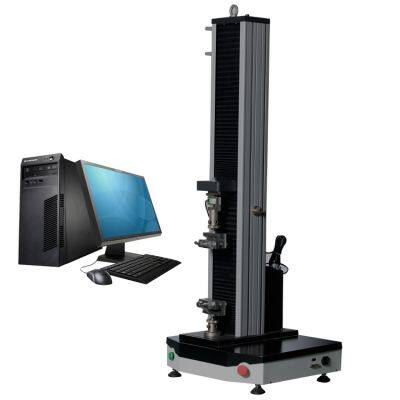 Single Column Tensile Testing Machine TesterUS$ 3000 - 10000MOQ: 1 SetJinan Wangtebei Instrument And Equipment Co.,ltd1 Yr
Single Column Tensile Testing Machine TesterUS$ 3000 - 10000MOQ: 1 SetJinan Wangtebei Instrument And Equipment Co.,ltd1 Yr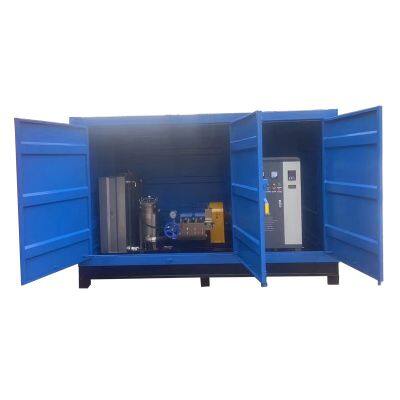 700bar to 1000bar High Pressure Water Jetting Machine Hydro Testing EquipmentUS$ 8888.00MOQ: 1 Setmachine type: HIGH PRESSURE CLEANERcondition: Newplace of origin: shenyang, Chinabrand name: RELIABLEShenyang Reliable Technology Co., Ltd.1 Yr
700bar to 1000bar High Pressure Water Jetting Machine Hydro Testing EquipmentUS$ 8888.00MOQ: 1 Setmachine type: HIGH PRESSURE CLEANERcondition: Newplace of origin: shenyang, Chinabrand name: RELIABLEShenyang Reliable Technology Co., Ltd.1 Yr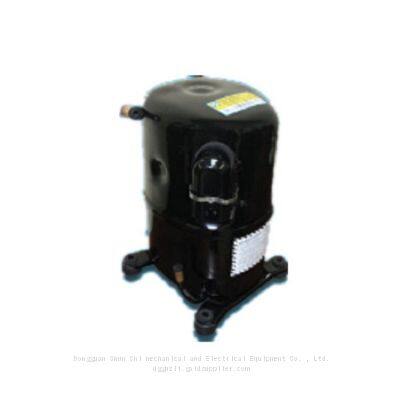 Aw4532ek AW4524EK AW5528EK KK Brand Compressor Ice Machine Test ChamberUS$ 300 - 2000MOQ: 1 PieceBrand Name: KKPlace of Origin: ChinaModel Number: Aw4532ek AW4524EK AW5528EKCertification: CEDongguan Shun Chi Mechanical And Electrical Equipment Co. , Ltd.3 Yrs
Aw4532ek AW4524EK AW5528EK KK Brand Compressor Ice Machine Test ChamberUS$ 300 - 2000MOQ: 1 PieceBrand Name: KKPlace of Origin: ChinaModel Number: Aw4532ek AW4524EK AW5528EKCertification: CEDongguan Shun Chi Mechanical And Electrical Equipment Co. , Ltd.3 Yrs 3D Ai Facial Skin Management Analyzer Moisture Skin Testing Analyzer MachineUS$ 1500.00MOQ: 1 Setplace of origin: Beijing, Chinabrand name: ADMLaserwarranty: 2 yearsafter-sales service provided: Online support, Free spare parts, Video technical support, Field installation, commissioning and trainingBeijing Adamei Technology Development Co., Ltd.1 Yr
3D Ai Facial Skin Management Analyzer Moisture Skin Testing Analyzer MachineUS$ 1500.00MOQ: 1 Setplace of origin: Beijing, Chinabrand name: ADMLaserwarranty: 2 yearsafter-sales service provided: Online support, Free spare parts, Video technical support, Field installation, commissioning and trainingBeijing Adamei Technology Development Co., Ltd.1 Yr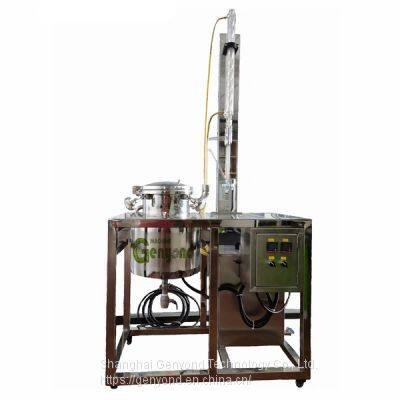 5L 10L 20L Small Essential Oil Distillation Machine for Home DIY, Lab Testing and Shop DisplayNegotiableMOQ: 1 SetPlace of Origin: ChinaAfter-sales Service Provided: Overseas third-party support availableDimension(L*W*H): 5L 10L 20LShanghai Genyond Technology Co., Ltd.2 Yrs
5L 10L 20L Small Essential Oil Distillation Machine for Home DIY, Lab Testing and Shop DisplayNegotiableMOQ: 1 SetPlace of Origin: ChinaAfter-sales Service Provided: Overseas third-party support availableDimension(L*W*H): 5L 10L 20LShanghai Genyond Technology Co., Ltd.2 Yrs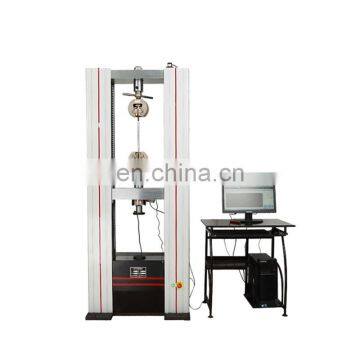 Tensile Test Machine Diagram\Tensile Testing MachinesUS$ 5,200 - 7,000MOQ: 1 SetBrand Name: HONGJINPlace of Origin: ChinaModel Number: HY-TH-10PCPower: ElectronicHongjing Test Instrument Co., Ltd.5 Yrs
Tensile Test Machine Diagram\Tensile Testing MachinesUS$ 5,200 - 7,000MOQ: 1 SetBrand Name: HONGJINPlace of Origin: ChinaModel Number: HY-TH-10PCPower: ElectronicHongjing Test Instrument Co., Ltd.5 Yrs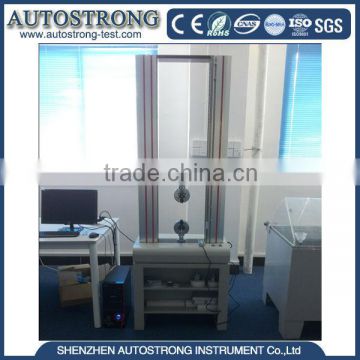 ISO9001 Tensile Testing MachineUS$ 5,600 - 18,000MOQ: 1 SetPlace of Origin: Guangdong, ChinaBrand Name: AUTOSTRONGModel Number: AUTO5305Power: ElectronicShenzhen Autostrong Instrument Co., Ltd.5 Yrs
ISO9001 Tensile Testing MachineUS$ 5,600 - 18,000MOQ: 1 SetPlace of Origin: Guangdong, ChinaBrand Name: AUTOSTRONGModel Number: AUTO5305Power: ElectronicShenzhen Autostrong Instrument Co., Ltd.5 Yrs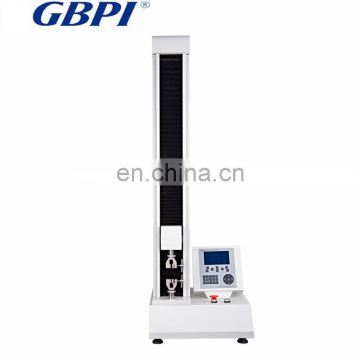 Electronic Tensile Testing Machine Universal Tensile Testing MachineUS$ 5.00 - 15.00MOQ: 1 SetBrand Name: GBPIPlace of Origin: Guangdong, ChinaModel Number: GBH-1Thickness Tester Co., Ltd5 Yrs
Electronic Tensile Testing Machine Universal Tensile Testing MachineUS$ 5.00 - 15.00MOQ: 1 SetBrand Name: GBPIPlace of Origin: Guangdong, ChinaModel Number: GBH-1Thickness Tester Co., Ltd5 Yrs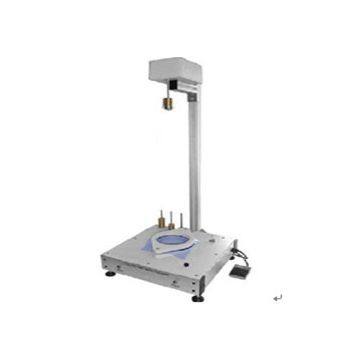 Terminal Horizontal Tensile Testing MachineUS$ 1,250 - 2,350MOQ: 1 PieceBrand Name: BNDPlace of Origin: Guangdong, ChinaModel Number: BND-Power: ElectronicShenzhen Bonad Instrument Co., Ltd.5 Yrs
Terminal Horizontal Tensile Testing MachineUS$ 1,250 - 2,350MOQ: 1 PieceBrand Name: BNDPlace of Origin: Guangdong, ChinaModel Number: BND-Power: ElectronicShenzhen Bonad Instrument Co., Ltd.5 Yrs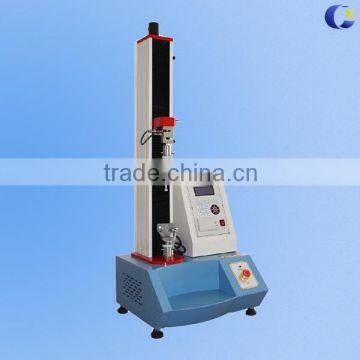 Computerized Universal Tensile Testing MachineUS$ 1.00 - 1.00MOQ: 1 SetPlace of Origin: Guangdong, ChinaBrand Name: ChuangxinModel Number: CX-108Power: ElectronicShenzhen Chuangxin Instruments Co., Ltd.5 Yrs
Computerized Universal Tensile Testing MachineUS$ 1.00 - 1.00MOQ: 1 SetPlace of Origin: Guangdong, ChinaBrand Name: ChuangxinModel Number: CX-108Power: ElectronicShenzhen Chuangxin Instruments Co., Ltd.5 Yrs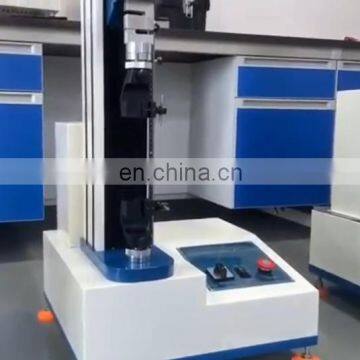 Liyi Single Column Tester Tensile Test MachineUS$ 2,980 - 5,480MOQ: 1 SetBrand Name: LiyiPlace of Origin: Guangdong, ChinaPower: ElectronicDongguan Liyi Environmental Technology Co., Ltd.5 Yrs
Liyi Single Column Tester Tensile Test MachineUS$ 2,980 - 5,480MOQ: 1 SetBrand Name: LiyiPlace of Origin: Guangdong, ChinaPower: ElectronicDongguan Liyi Environmental Technology Co., Ltd.5 Yrs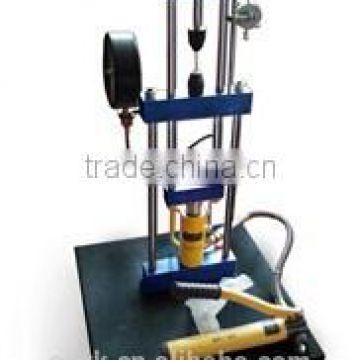 XK-L311 Tensile Testing Machine Teaching EquipmentUS$ 100 - 1,000MOQ: 1 SetPlace of Origin: Shandong, ChinaBrand Name: XING KEModel Number: XK-L311Shandong Xingke Intelligent Technology Co., Ltd.5 Yrs
XK-L311 Tensile Testing Machine Teaching EquipmentUS$ 100 - 1,000MOQ: 1 SetPlace of Origin: Shandong, ChinaBrand Name: XING KEModel Number: XK-L311Shandong Xingke Intelligent Technology Co., Ltd.5 Yrs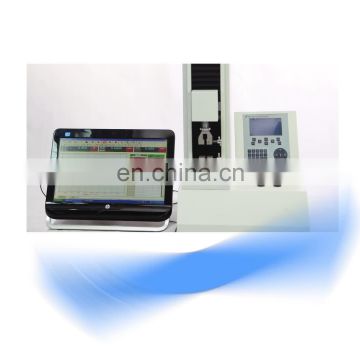 Electronic Tensile Strength Testing Machine Desktop Tensile Testing MachineUS$ 6,000 - 9,000MOQ: 1 SetBrand Name: GBPIPlace of Origin: Guangdong, ChinaModel Number: GBH-1Power: ElectronicGuangzhou Biaoji Packaging Equipment Co., Ltd.5 Yrs
Electronic Tensile Strength Testing Machine Desktop Tensile Testing MachineUS$ 6,000 - 9,000MOQ: 1 SetBrand Name: GBPIPlace of Origin: Guangdong, ChinaModel Number: GBH-1Power: ElectronicGuangzhou Biaoji Packaging Equipment Co., Ltd.5 Yrs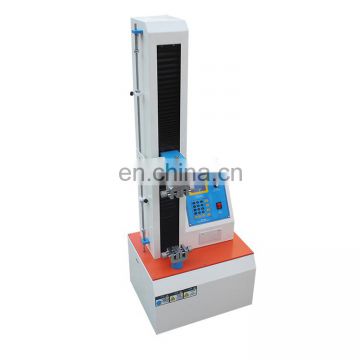 200KN Universal Material Compression Bending Tensile Testing MachineUS$ 3,000 - 3,000MOQ: 1 UnitBrand Name: MENTEKPlace of Origin: Guangdong, ChinaModel Number: MTK-SPower: ElectronicBiaojin Packaging Equipment Co., Ltd.5 Yrs
200KN Universal Material Compression Bending Tensile Testing MachineUS$ 3,000 - 3,000MOQ: 1 UnitBrand Name: MENTEKPlace of Origin: Guangdong, ChinaModel Number: MTK-SPower: ElectronicBiaojin Packaging Equipment Co., Ltd.5 Yrs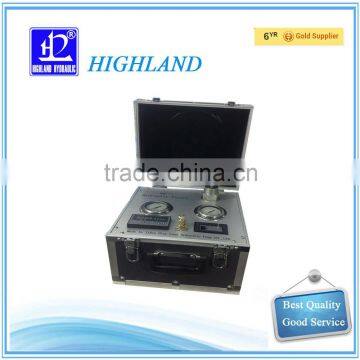 Portalbe and Digital Hydraulic Tensile Testing Machine for Hydraulic Repair FactoryUS$ 1,400 - 2,500MOQ: 1 UnitPlace of Origin: Shandong, ChinaBrand Name: HighlandModel Number: MYHT-1 series hydraulic tensile testing machineJi'nan High Land Hydraulic Pump Co., Ltd.5 Yrs
Portalbe and Digital Hydraulic Tensile Testing Machine for Hydraulic Repair FactoryUS$ 1,400 - 2,500MOQ: 1 UnitPlace of Origin: Shandong, ChinaBrand Name: HighlandModel Number: MYHT-1 series hydraulic tensile testing machineJi'nan High Land Hydraulic Pump Co., Ltd.5 Yrs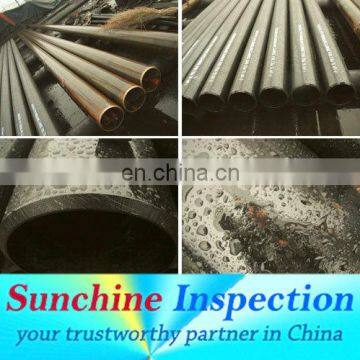 Chemical Analysis Testing and Tensile Strength Testing for Steel Pipe Inspection ServiceUS$ 158 - 280MOQ: 1 CasePlace of Origin: Jiangsu, ChinaBrand Name: Sunchine inspectionModel Number: inspection and QCNanjing Sunchine Quality Control Technology Service Co., Ltd.5 Yrs
Chemical Analysis Testing and Tensile Strength Testing for Steel Pipe Inspection ServiceUS$ 158 - 280MOQ: 1 CasePlace of Origin: Jiangsu, ChinaBrand Name: Sunchine inspectionModel Number: inspection and QCNanjing Sunchine Quality Control Technology Service Co., Ltd.5 Yrs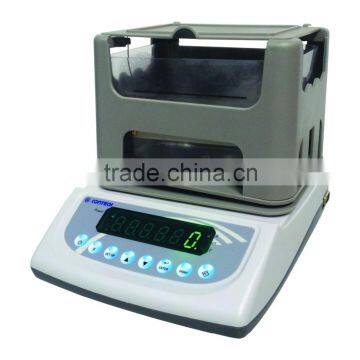 Testing MachinesNegotiableMOQ: 1 UnitPlace of Origin: Maharashtra, IndiaBrand Name: Contech Instruments Ltd.Model Number: CTL SeriesType: Other, Gold Testing InstrumentsContech Instruments Limited5 Yrs
Testing MachinesNegotiableMOQ: 1 UnitPlace of Origin: Maharashtra, IndiaBrand Name: Contech Instruments Ltd.Model Number: CTL SeriesType: Other, Gold Testing InstrumentsContech Instruments Limited5 Yrs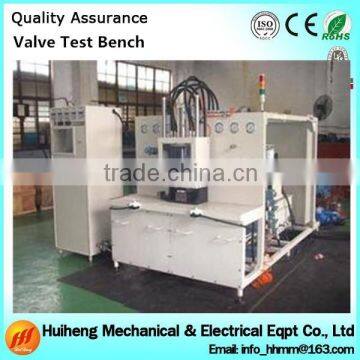 90KW( Hydraulic) Multi Channel Valve Tensile Test BenchUS$ 7,500 - 36,000MOQ: 1 SetPlace of Origin: Guangdong, ChinaBrand Name: HuihengModel Number: HH-F-55~~HH-F-160Power: Other, Hydraulic, 55,75,90,132,160 KWGuangzhou Huiheng Mechanical And Electrical Equipment Co., Ltd.5 Yrs
90KW( Hydraulic) Multi Channel Valve Tensile Test BenchUS$ 7,500 - 36,000MOQ: 1 SetPlace of Origin: Guangdong, ChinaBrand Name: HuihengModel Number: HH-F-55~~HH-F-160Power: Other, Hydraulic, 55,75,90,132,160 KWGuangzhou Huiheng Mechanical And Electrical Equipment Co., Ltd.5 Yrs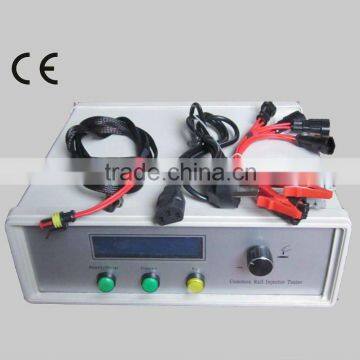 Piezo Injector Test Machine ( CRI700-I) Test Machine , Test ToolNegotiableMOQ: 1 SetPlace of Origin: Shandong, ChinaBrand Name: haiyuModel Number: CRI-700Power: ElectronicTaian Haiyu Machinery Co., Ltd.5 Yrs
Piezo Injector Test Machine ( CRI700-I) Test Machine , Test ToolNegotiableMOQ: 1 SetPlace of Origin: Shandong, ChinaBrand Name: haiyuModel Number: CRI-700Power: ElectronicTaian Haiyu Machinery Co., Ltd.5 Yrs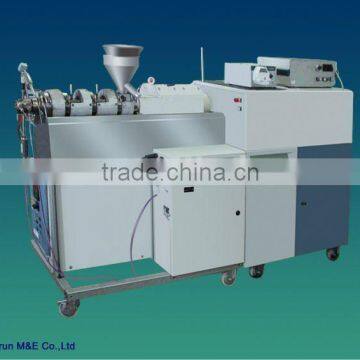 Snack Test MachinesUS$ 13,000 - 18,000MOQ: 1 SetBrand Name: LerunModel Number: LRS-30Type: Grain Processing EquipmentJinan Lerun Machinery & Equipment Co., Ltd.5 Yrs
Snack Test MachinesUS$ 13,000 - 18,000MOQ: 1 SetBrand Name: LerunModel Number: LRS-30Type: Grain Processing EquipmentJinan Lerun Machinery & Equipment Co., Ltd.5 Yrs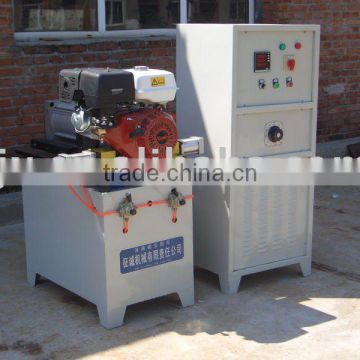 Advanced Motor Testing MachineUS$ 1,000 - 1,500MOQ: 1 SetPlace of Origin: Henan, ChinaBrand Name: zhengchengModel Number: GY-6Anyang Zhengcheng Machinery Co., Ltd.5 Yrs
Advanced Motor Testing MachineUS$ 1,000 - 1,500MOQ: 1 SetPlace of Origin: Henan, ChinaBrand Name: zhengchengModel Number: GY-6Anyang Zhengcheng Machinery Co., Ltd.5 Yrs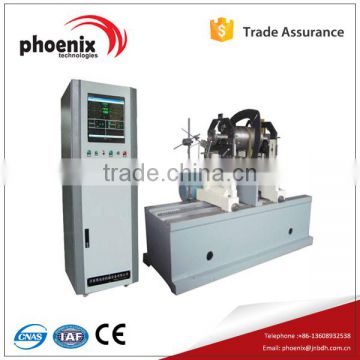 Balancing Crankshaft Test MachineUS$ 5,000 - 8,000MOQ: 1 UnitPlace of Origin: Shandong, ChinaBrand Name: PHOENIXModel Number: YYQ-160APower: ElectronicJinan Bodihao Mechanical Equipment Co., Ltd.5 Yrs
Balancing Crankshaft Test MachineUS$ 5,000 - 8,000MOQ: 1 UnitPlace of Origin: Shandong, ChinaBrand Name: PHOENIXModel Number: YYQ-160APower: ElectronicJinan Bodihao Mechanical Equipment Co., Ltd.5 Yrs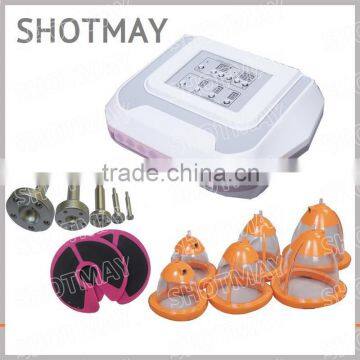 Skin Test MachineUS$ 80 - 150MOQ: 1 UnitFeature: Acne Treatment, Anti-Hair Removal, Anti-Puffiness, Black Head Remover, Blood Vessels Removal, Breast Enhancers, Cellulite Reduction, Dark Circles, Deep Cleansing, Detox, Exfoliators, Face Lift, Hair Removal, Lightening, Moisturizer, Nourishing, Pigment Removal, Pigmentation Correctors, Pore Remover, Skin Rejuvenation, Skin Revitalizer, Skin Tightening, Tanning, Tattoo Removal, Weight Loss, Whitening, Wrinkle RemoverOperation System: Other, vibration led microcurrentPlace of Origin: Guangdong, ChinaBrand Name: shotmayGuangzhou Shotmay Beauty Co., Ltd.5 Yrs
Skin Test MachineUS$ 80 - 150MOQ: 1 UnitFeature: Acne Treatment, Anti-Hair Removal, Anti-Puffiness, Black Head Remover, Blood Vessels Removal, Breast Enhancers, Cellulite Reduction, Dark Circles, Deep Cleansing, Detox, Exfoliators, Face Lift, Hair Removal, Lightening, Moisturizer, Nourishing, Pigment Removal, Pigmentation Correctors, Pore Remover, Skin Rejuvenation, Skin Revitalizer, Skin Tightening, Tanning, Tattoo Removal, Weight Loss, Whitening, Wrinkle RemoverOperation System: Other, vibration led microcurrentPlace of Origin: Guangdong, ChinaBrand Name: shotmayGuangzhou Shotmay Beauty Co., Ltd.5 Yrs Sourcing Agent inquired about Automatic Electronic Tensile Testing Machine with 1000KN Capacity2025-10-22 12:40:57
Sourcing Agent inquired about Automatic Electronic Tensile Testing Machine with 1000KN Capacity2025-10-22 12:40:57 Buyer submitted an RFQ for circuit breaker test machine 300a circuit breaker test equipment electric dc circuit breaker timing test set2025-10-22 13:27:58
Buyer submitted an RFQ for circuit breaker test machine 300a circuit breaker test equipment electric dc circuit breaker timing test set2025-10-22 13:27:58 Sourcing Agent requested a quote for Diesel car fuel system testing machine injector testing machine2025-10-22 21:48:52
Sourcing Agent requested a quote for Diesel car fuel system testing machine injector testing machine2025-10-22 21:48:52 Verified Buyer placed an order for Hydraulic Fatigue Tensile Testing Machine Price2025-10-21 03:23:09
Verified Buyer placed an order for Hydraulic Fatigue Tensile Testing Machine Price2025-10-21 03:23:09 Business Owner requested a quote for automatic plastic soft test tube labeling machine2025-10-22 16:27:25
Business Owner requested a quote for automatic plastic soft test tube labeling machine2025-10-22 16:27:25 Purchasing Director verified certifications for Automated Two Cylinder Hydraulic Thread Rolling Machine High Tensile Strength2025-10-23 19:50:51
Purchasing Director verified certifications for Automated Two Cylinder Hydraulic Thread Rolling Machine High Tensile Strength2025-10-23 19:50:51 Sourcing Agent verified certifications for Tensile Testing Machine 50kn Computer Controlled Universal Tensile Testing Machine15 hours ago
Sourcing Agent verified certifications for Tensile Testing Machine 50kn Computer Controlled Universal Tensile Testing Machine15 hours ago Purchasing Director verified certifications for Vibrating sand screen machine lab testing machine2025-10-18 23:37:45
Purchasing Director verified certifications for Vibrating sand screen machine lab testing machine2025-10-18 23:37:45 Lead Purchaser requested a quote for high tensile strength pk v belt for sewing machine 4pk11102025-10-21 15:04:33
Lead Purchaser requested a quote for high tensile strength pk v belt for sewing machine 4pk11102025-10-21 15:04:33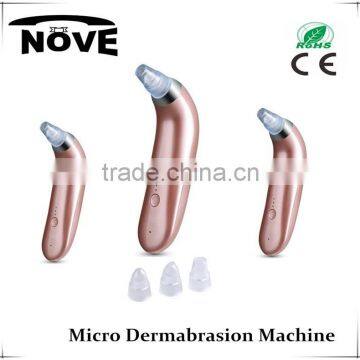 Diamond Testing MachineUS$ 35 - 45MOQ: 1 PieceCertification: CEBrand Name: NOVEModel Number: NV-110Chongqing Nove Precision Tool Co., Ltd.5 Yrs
Diamond Testing MachineUS$ 35 - 45MOQ: 1 PieceCertification: CEBrand Name: NOVEModel Number: NV-110Chongqing Nove Precision Tool Co., Ltd.5 Yrs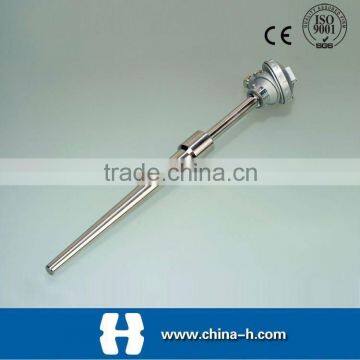 HUAKUI Quenching Testing MachineUS$ 10 - 400MOQ: 5 PiecesPlace of Origin: Zhejiang, ChinaBrand Name: HUAKUIModel Number: Welded Thermocouple & RTDsUsage: IndustrialHuadong Instrument And Meter Factory Yueqing5 Yrs
HUAKUI Quenching Testing MachineUS$ 10 - 400MOQ: 5 PiecesPlace of Origin: Zhejiang, ChinaBrand Name: HUAKUIModel Number: Welded Thermocouple & RTDsUsage: IndustrialHuadong Instrument And Meter Factory Yueqing5 Yrs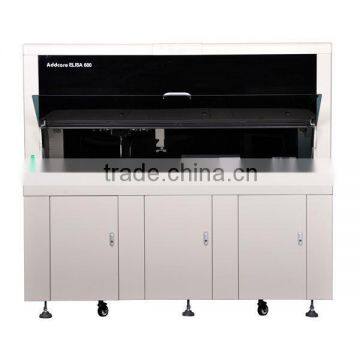 Lab Elisa Testing MachineUS$ 1 - 1MOQ: 1 SetType: Blood Analysis SystemBrand Name: ADDCAREModel Number: ADC 400Place of Origin: Shandong, ChinaYantai Addcare Bio-Tech Limited Company5 Yrs
Lab Elisa Testing MachineUS$ 1 - 1MOQ: 1 SetType: Blood Analysis SystemBrand Name: ADDCAREModel Number: ADC 400Place of Origin: Shandong, ChinaYantai Addcare Bio-Tech Limited Company5 Yrs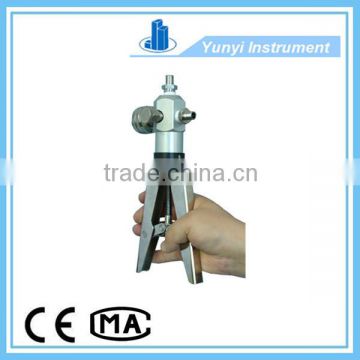 Hydrostatic Pressure Test MachineUS$ 200 - 500MOQ: 1 UnitPlace of Origin: Shaanxi, ChinaBrand Name: YunyiModel Number: Y039/Y061/Y060Power: HydraulicXi'an Yunyi Instrument Co., Ltd.5 Yrs
Hydrostatic Pressure Test MachineUS$ 200 - 500MOQ: 1 UnitPlace of Origin: Shaanxi, ChinaBrand Name: YunyiModel Number: Y039/Y061/Y060Power: HydraulicXi'an Yunyi Instrument Co., Ltd.5 Yrs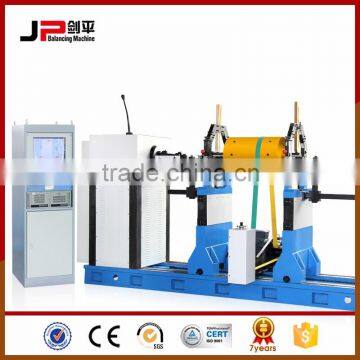 Balancing Machine in Test EquipmentUS$ 100 - 100,000MOQ: 1 SetPlace of Origin: Shanghai, ChinaBrand Name: JpModel Number: PHWQ-3000HPower: ElectronicShanghai Jianping Dynamic Balancing Machine Manufacturing Co., Ltd.5 Yrs
Balancing Machine in Test EquipmentUS$ 100 - 100,000MOQ: 1 SetPlace of Origin: Shanghai, ChinaBrand Name: JpModel Number: PHWQ-3000HPower: ElectronicShanghai Jianping Dynamic Balancing Machine Manufacturing Co., Ltd.5 Yrs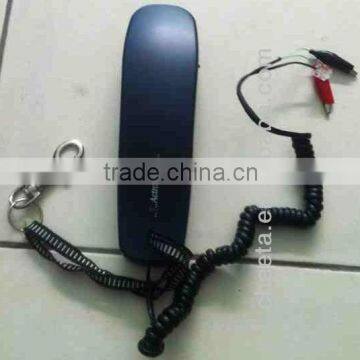 Telephone Line Test MachineNegotiableMOQ: 5000 PiecesPlace of Origin: Guangdong, ChinaBrand Name: CheetaModel Number: CT-TW126Type: Other, Trimline telephoneShenzhen Cheeta Technology Co., Ltd.5 Yrs
Telephone Line Test MachineNegotiableMOQ: 5000 PiecesPlace of Origin: Guangdong, ChinaBrand Name: CheetaModel Number: CT-TW126Type: Other, Trimline telephoneShenzhen Cheeta Technology Co., Ltd.5 Yrs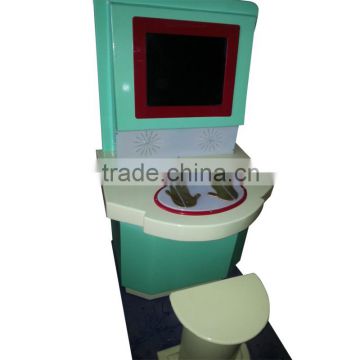 Heart Rate Testing MachineNegotiableMOQ: 10 PiecesPlace of Origin: Zhejiang, ChinaBrand Name: HuamaoModel Number: HM-XZ-185Ningbo Huamao International Trading Co., Ltd.5 Yrs
Heart Rate Testing MachineNegotiableMOQ: 10 PiecesPlace of Origin: Zhejiang, ChinaBrand Name: HuamaoModel Number: HM-XZ-185Ningbo Huamao International Trading Co., Ltd.5 Yrs

